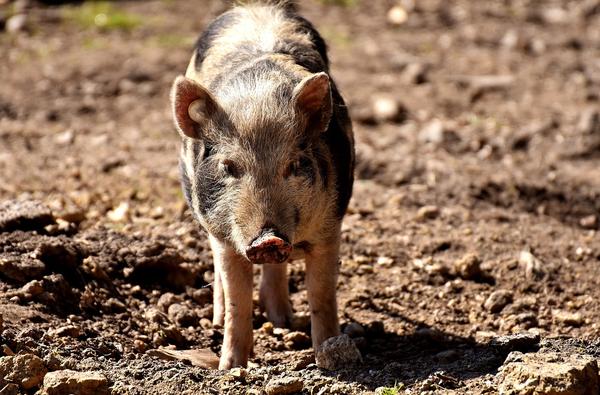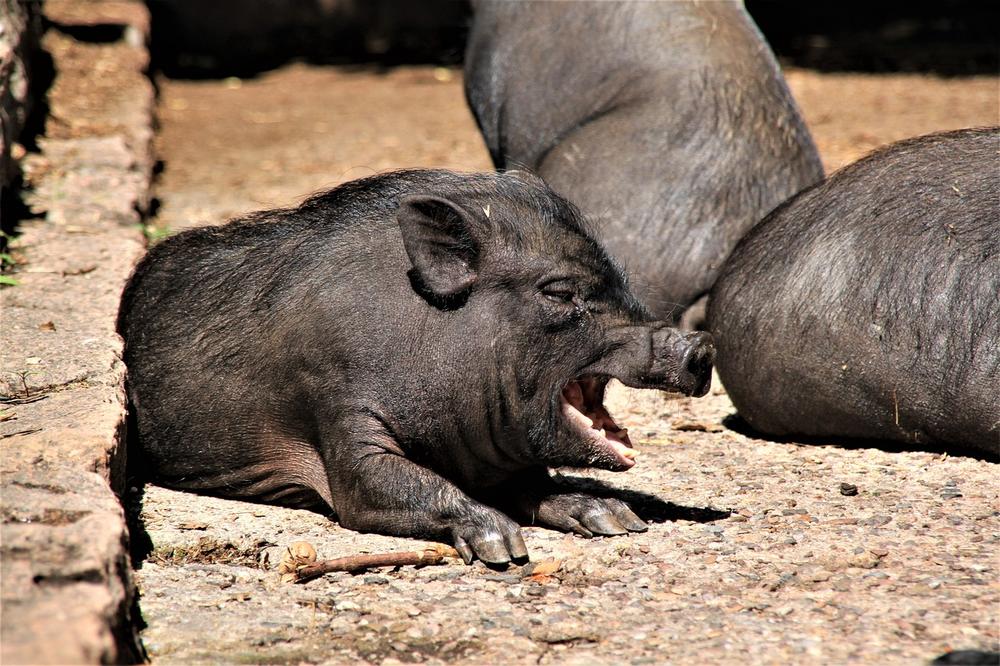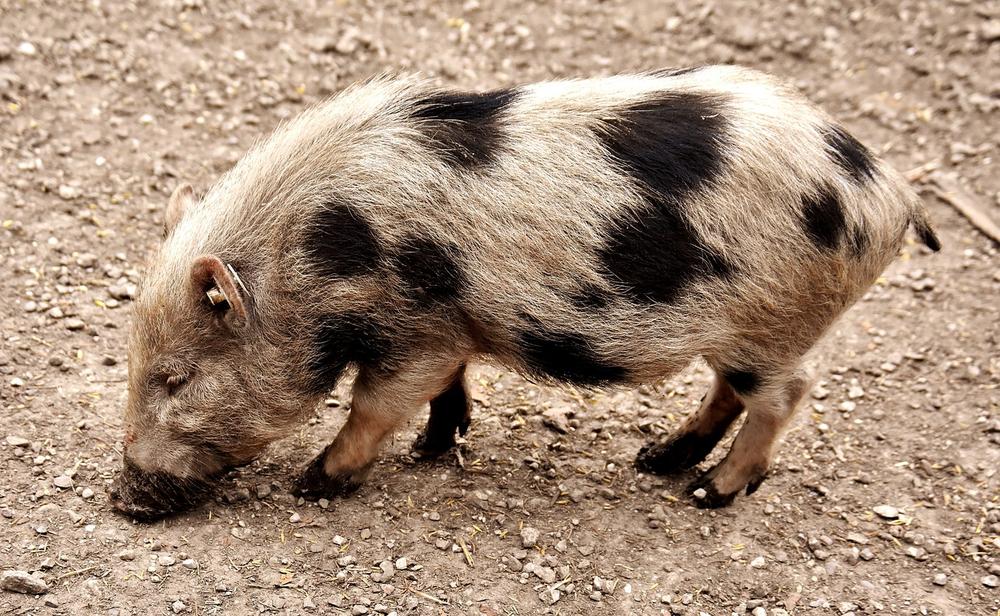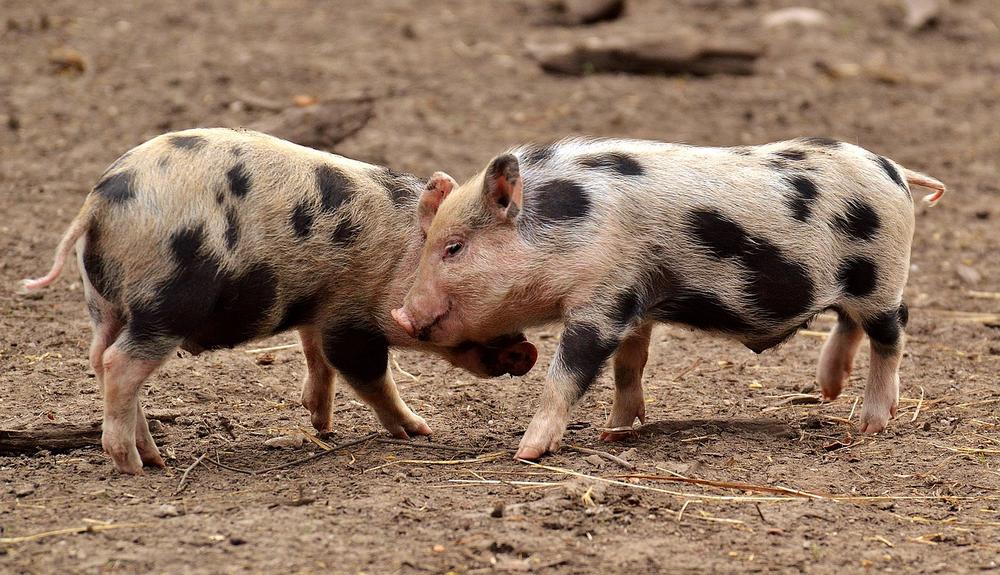Can Pet Pigs Have Allergies? (Signs, Prevention, and Treatment)

Have you ever found yourself lying awake at night, consumed by the concern for your beloved pet pig?
You can't help but wonder, can pet pigs have allergies? 🐷
I understand, your piglet's health is a top priority.
You've probably spent countless hours searching the internet, seeking answers, only to come up empty-handed.
But fear not, my friend.
Today, we're going to dive deep into this mysterious world and uncover the truth together.
So buckle up and get ready, because we're about to embark on a journey filled with surprises, revelations, and maybe even a few snorts along the way.
Let's begin.
Can Pet Pigs Have Allergies?
Yes, pet pigs can develop allergies due to genetic factors and their diet. Environmental factors like pollen, dust, molds, and specific foods can also trigger allergies, especially in miniature pigs. To prevent allergies, you have to monitor their diet and surroundings, ensuring a healthy and happy piggy.
Pet pigs can have allergies, just like humans. Allergies can be caused by certain foods and environmental factors.
Miniature pigs, in particular, are prone to developing allergies to nuts, soya, flax, and linseed.
They can also be affected by allergens present in their environment, such as pollen, dust particles, molds, and specific types of food.
So, it's important for you to pay attention to what they eat and their surroundings.
You need to be proactive regarding potential allergies.

Stay vigilant about your piggy's diet and ensure they don't consume any foods that could trigger an allergic response.
Avoid giving peanuts or any other type of nuts to your pet pig since they are known allergens.
But that's not all; pigs can also be sensitive to environmental allergens.
Is your piggy frequently exposed to pollen, dust, or molds?
If so, these substances could be causing their allergies.
To minimize your pig's exposure to these allergens, take steps like keeping them indoors during high pollen seasons and regularly cleaning their living area to reduce dust and mold accumulation.
Prevention is better than cure when it comes to allergies.
Main points I'll expand upon further down this article:
- Allergies in pet pigs can be triggered by various foods, materials, and the environment.
- Moldy food, parsnip tops, insect bites, parasites, mites, cleaning products, and strong scents can cause allergic reactions in pigs.
- Environmental factors like hay, straw, pollen, and dust can also elicit allergic responses.
- Allergic reactions can affect the pig's skin, intestinal tract, and respiratory tract, leading to rashes, snorting, lumps, discomfort, itchiness, and loss of appetite.
- Being alert to changes in behavior and skin color can help identify allergies in pigs.
- Prompt veterinary care is essential to address allergies and prevent complications.
- Guinea pigs can develop allergies, with common allergens being pollen, hay, and soy protein.
- Caution should be taken when introducing new foods to a guinea pig's diet.
- Maintaining overall pig health may help reduce allergic reactions.
- It is important to keep the living environment and feed area free from potential allergens to prevent allergies in pigs.
And it gets worse...
Allergic reactions in pet pigs can lead to various physical symptoms and potential complications.
So, what are the common signs of allergies in these adorable creatures?
Let's delve into the tell-tale indicators that you need to be aware of to ensure your piggy's well-being.
Signs of Allergic Reactions in Pigs
If your beloved pet pig starts showing physical symptoms like redness and swelling of the skin, excessive scratching, rashes, snorting, lumps, bumps, discomfort, itchiness, or loss of appetite, it might be an allergic reaction.
Pigs can have allergies too, you know. Moldy food, parsnip tops, insect bites, parasites, mites, cleaning products, strong scents, hay, straw, pollen, and dust are some common triggers for these reactions in pigs.
Always be on the lookout for changes in your pig's behavior and skin color.
If you notice anything unusual, ensure to act fast and seek veterinary care immediately.

Don't let those allergies cause complications for your pig's skin, intestinal tract, or respiratory system.
Take action, my friend.
And if you're concerned about your pig's well-being, I have just the information for you.
In my article, I delve into the causes and potential solutions for depression in pigs. By understanding these factors, you can better support your pet's mental health. So dive into the world of Depressed Pigs and discover how you can make a positive difference in your pig's life
Preventing Allergies in Guinea Pigs
Guinea pigs are adorable little creatures, but they can also develop allergies. 😔
Yep, even our furry friends aren't immune to allergens.
So, what can you do to prevent allergies in guinea pigs?
I've rounded up some tips to help you out:
- Gradually introduce new foods: You need to take it slow when adding new items to your piggy's diet. This helps minimize the risk of toxicity or allergic reactions.
- Be cautious with soy protein: Early weaning may increase the chances of hypersensitivity to soy protein. Look for feed companies that offer allergy-friendly options and focus on improving gut health.
- Spot test new bedding: Before fully committing to a new type of bedding, ensure to spot test it first. This will help prevent any potential allergies from being triggered.
- Maintain all in all health: Keeping your guinea pig healthy is key to reducing allergic reactions. Opt for specific pig pellets as their main food source and avoid certain fruits and veggies that could be toxic.
- Avoid moldy bread: Moldy bread isn't just bad for humans, it's toxic for guinea pigs too. Keep it away from their reach to prevent any unwanted allergies.
- Use stainless steel non-skid bowls: These types of bowls are recommended for feeding to minimize potential allergies caused by other materials.
- Properly sanitize bedding: Regularly clean and sanitize your piggy's bedding using appropriate materials. This helps keep allergens at bay and ensures a healthier living environment.
- Invest in supplies: Various supplies like blankets, harnesses, crates, litterboxes, pine shavings, Odoban, and floor pads can aid in caring for your guinea pig and reduce allergies.
- Consider air purifiers: Hay dust allergies can be a common issue. Consider investing in an air purifier to filter out any potential allergens floating around in the air.
- Keep allergies away from their environment: Keep your piggy's living area and feed area free from potential allergens. Regularly clean and remove anything that could trigger allergies.
Prevention is the key to a happy and healthy guinea pig.
Treating Skin Allergies in Pigs
Natural remedies for treating skin allergies in pigs
You can attempt various natural remedies to assist your pig in alleviating skin allergies.
One option is using chamomile tea soaks, which can ease itching and irritation caused by allergies.
Just ensure to have Chamomile tea bags on hand because loose leaf won't do the trick.
Keep in mind that these natural remedies might not work for every pig since each one is unique.
What works for one may not work for another, depending on the specific allergen causing the allergy.
Close monitoring and identification of allergens
To effectively treat your pig's allergies, you need to identify and remove the allergen causing the reaction.

This means closely observing your pig and keeping an eye on their environment, diet, and any potential changes that could trigger a reaction.
Once you've figured out the allergen, do your best to eliminate it from your pig's surroundings.
Whether it's a certain type of feed, bedding material, or even an environmental factor, removing the allergen is crucial for long-term relief.
Seeking veterinary assistance for severe cases
If your pig is experiencing intense itching and discomfort due to skin allergies, it's best to consult a veterinarian. They will thoroughly examine your pig and recommend appropriate treatment options tailored specifically to their needs.
Your vet may suggest using antihistamine creams like Allermin to relieve itching and provide temporary relief.
Furthermore, applying an emulsion of extra-virgin olive oil to your pig's skin can help soften and moisturize it, reducing dryness and irritation.
Before considering medication options like Benadryl, you ought to consult a veterinarian who can advise you on the proper dosage and inform you about any potential side effects.
And that's all for today folks.
You made it to the end of my blog post! Can I ask how you liked it? I worked really hard to make it comprehensive and helpful. It took me a lot of time (in a good way) to write it, so if you could do me a huge favor and click on any of the social sharing icons to share this post with others, I would be extremely grateful. Thank you so much!
Until next time,
-Chris Campbell